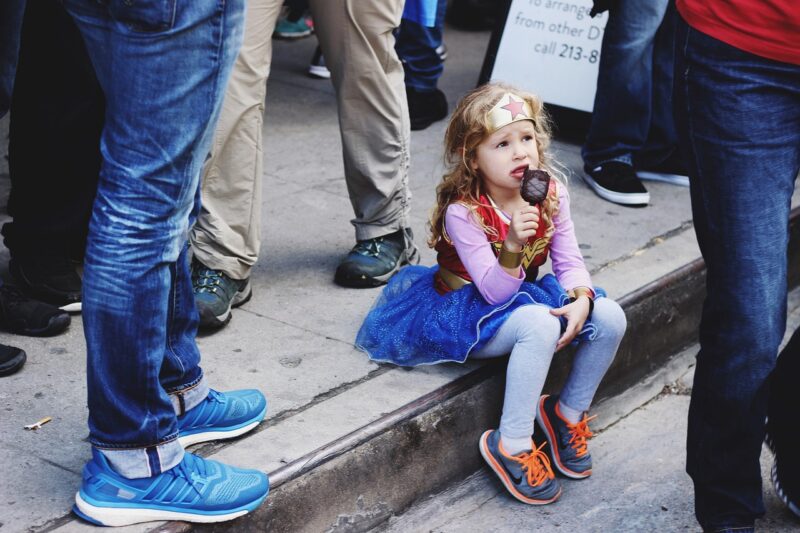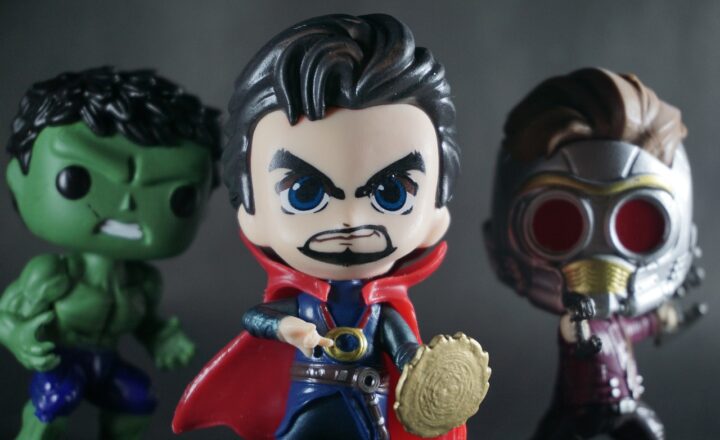How Comics Have Addressed Mental Health Through Superhero Storylines and Symbolic Struggles
November 11, 2024

Comics have long been a source of entertainment, but their influence extends far beyond mere escapism. In recent years, various comic book creators have been increasingly adept at weaving stories that address mental health issues, showing readers that they are not alone in their struggles. Through the lens of superhero narratives, these comics present relatable characters who battle their own demons, showcasing how mental health can be a complex and nuanced topic.
1. The Evolution of Superheroes and Mental Health
Historically, superheroes were often one-dimensional characters whose primary focus was to battle villains and save the day. However, over the decades, comic book writers recognized the potential to explore deeper themes, including mental health. This shift not only resonated with a changing readership but also made the narratives more relatable.
In the early 80s, comics like “The Dark Knight Returns” by Frank Miller introduced darker tones and themes that explored the psychological aspects of superheroes. Batman’s struggles with his past traumas and his mental state started opening conversations about the impact of emotional conflict on an individual’s life, even for those who seemed invincible.
2. Iconic Characters Facing Mental Health Challenges
Several iconic superheroes have become representations of various mental health struggles. These characters have powered through their adversities, making them relatable to many readers.
2.1. Spider-Man and the Weight of Responsibility
Peter Parker, as Spider-Man, epitomizes the struggle with anxiety and depression. The never-ending responsibility he feels to save others—combined with his personal losses, including the deaths of Uncle Ben and Gwen Stacy—adds layers to his character that showcase the effects of trauma and guilt.
As Spider-Man deals with daily challenges while attempting to balance his personal life, readers can’t help but see their own struggles mirrored in his fight against the burden of guilt—a poignant reminder of the expectations that weigh on individuals, especially in a fast-paced world.
2.2. The Hulk and Anger Management
Bruce Banner’s transformation into the Hulk is a visual and conceptual metaphor for anger management and internal rage. The struggle between Banner’s calm intellect and the uncontrollable rage of the Hulk reflects the challenges faced by those who deal with anger issues or emotional regulation difficulties.
Rather than simply portraying the Hulk as a mindless brute, stories explore Banner’s attempts to understand and control his anger, showing the importance of emotional awareness and constructive coping mechanisms.
2.3. Iron Man and Substance Abuse
Tony Stark’s journey with addiction speaks volumes about mental health and vulnerability. Iron Man depicts the real struggles with substance abuse, particularly in story arcs such as “Demon in a Bottle.” Readers see a man war against his inner demons—symbolizing the fight against addiction while still striving to maintain a superhero persona.
Tony Stark’s character arc brings forth a deeper understanding that even heroes can fall victim to their vices, emphasizing the importance of seeking support and addressing mental health challenges openly.
3. Symbolism in Comic Storytelling
One of the greatest strengths of comics is their ability to use symbolism to depict complex themes, like mental health, in a way that resonates with readers. Employing vivid imagery and metaphor fosters a deeper understanding of difficult topics.
3.1. The Shadow and Inner Demons
Characters like Batman, with his dark and brooding personality, symbolize the inner demons we all face. The city of Gotham serves as a backdrop, illustrating the chaos of a troubled mind. Each villain embodies elements of fear, guilt, and unresolved trauma, inviting readers to reflect on their own challenges and the value in confronting them.
3.2. The Journey of Recovery: Overcoming Personal Barriers
Story arcs focusing on a hero’s journey often parallel the process of recovery from mental health issues. Comics depict characters who undergo personal transformations, learning to cope with their struggles and embrace vulnerability as a source of strength. This mirrors the journey many individuals make in real life while learning to tackle their mental health challenges.
For instance, “Ms. Marvel” by G. Willow Wilson offers a fresh perspective by highlighting Kamala Khan’s identity conflicts, illustrating the complexities of being a young Muslim in America and how cultural pressures can affect mental well-being.
4. The Role of Community and Support Systems
Many modern comics emphasize the importance of community and support systems, mirroring how real-life relationships can be pivotal in mental health recovery. Hero teams like the Avengers or the Teen Titans showcase how having a strong support network can create a path to healing.
These narratives encourage readers to understand that it’s okay to seek help, whether it be from friends, family, or professionals. Collaborating with others in battles—both physical and emotional—exemplifies how supportive relationships foster resilience and growth.
5. Bridging the Gap: Comics as a Mental Health Resource
The increasing prevalence of mental health themes in comics has allowed these narratives to serve as valuable resources for readers seeking solace and understanding. Comic creators today actively work alongside mental health organizations to provide insight and create awareness. Many advocates use superhero storytelling to break the stigma around mental health issues, showing that discussing these struggles openly is crucial for society’s growth.
Various titles dedicated to mental health stories, such as “The Many Deaths of Laila Starr” or “Superman: Red Son,” illustrate how comics can deeply resonate with members of the mental health community while addressing critical issues. Acknowledging that these heroes face psychological battles reminds readers that strength lies in vulnerability and honesty.
Conclusion: The Power of Comics in Mental Health Discourse
Comics have evolved from mere entertainment into profound vehicles for addressing mental health challenges. By highlighting relatable characters who battle mental health issues, these narratives not only foster empathy but also encourage readers to seek help and connect with their emotions. As the stigma surrounding mental health continues to dissipate, comics will remain essential in portraying one of life’s most complex narratives—the journey of healing, growth, and resilience. So, the next time you pick up a comic, remember that even heroes have their struggles, and that can spark a much-needed conversation about mental health.








